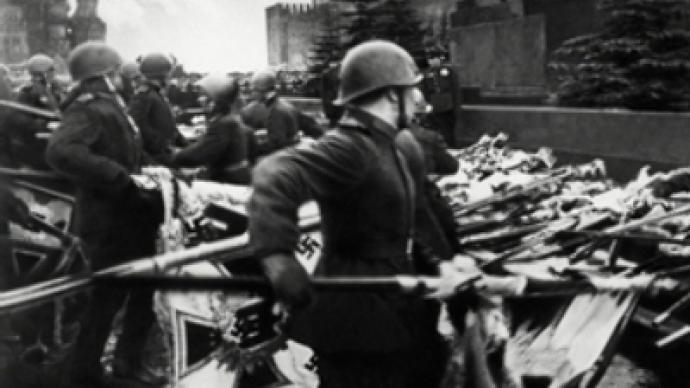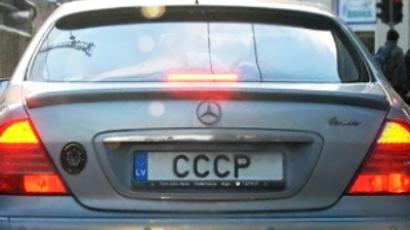An anti-denial law of our own

Russia needs a new law to punish anyone denying the role of the Soviet Union in the defeat of Nazi Germany, according to Emergencies Minister Sergey Shoigu.
A law that would make denial of the Soviet war effort a criminal offence is needed to “protect out history, and the heroic deeds of our fathers and grandfathers,” Shoigu said while speaking to World War II veterans on Tuesday.
He said with such a law in force “presidents of certain countries, who deny it [Soviet Union’s contribution] will not be free to visit our country, and the mayors of some cities would think twice before demolishing monuments.”
The minister didn’t specify how he wanted a Russian law to have jurisdiction over those in other countries.
Shoigu compared the proposed legislation with laws prohibiting denial of the Holocaust in many European countries.
‘Did Hitler win?’
Some politicians do speculate on the sensitive issue of World War II to score points, and a law against this may prove useful, said Anatoly Kucherena, a member of the Russia Public Chamber, an elected panel of experts advising authorities on new legislation and protecting human rights.
“This issue needs both a public and legal review. Demonstrating the role of Russia, of the Soviet Union, in defeating fascism is very important,” Kucherena told the Interfax news agency.
He added he is against repressive measures, but believes Russia’s war history should not be subject to speculation.
On other hand, Oleg Orlov, head of the Memorial non-profit, said the proposed law by Shoigu is suspicious and harms historical science. Orlov’s organization seeks to find and preserve historical evidence of Soviet history.
“How can the victory be denied? Are there people who say Hitler won? This is a dangerous proposition in terms of legal consequences,” he commented.
He added that criminal prosecutions were something reserved for those calling for violence or instilling national hatred, not for expressing one’s opinion.
Most Russian politicians were cautious when commenting on the news. Everyone admitted there was the problem with some historians and politicians trying to revise the events of World War II. Many also noted there are mechanisms in place to counter it, while prosecution of ‘Soviet victory deniers’ would face problems with defining what counts as one and what does not.
Voting responsibility
Sergey Shoigu is noted for another radical legislative suggestion. In 2003 he called to strip people of their citizenship for ignoring elections. He argued that if somebody has failed to show up for ballots three times in a row, it shows he didn’t care about the country he lived in and thus could not be its citizen. The suggestion received little support.
Prosecution of historical revisionism
More then a dozen countries, most of them European, has some kind of legislation against denial of the Holocaust, the mass murder of Jews by Nazi Germany, and more are to adopt such laws soon. Ukraine has a law against denying the Holodomor, the famine that hit Soviet Ukraine in 1930, which Kiev says was genocide committed against ethnic Ukrainians.
Anti-denial legislation has been suggested in some European countries to cover other historical events, including the genocide of Armenians by the Ottoman Empire during World War I, atrocities committed during the latest Balkan war and other events.













